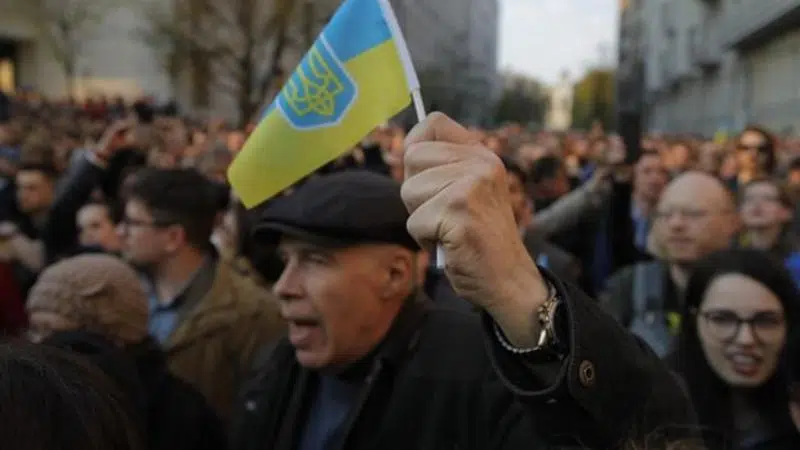
Axworthy urges renewed Canada-Ukraine ties despite concerns about new president
OTTAWA — A former Canadian foreign minister who monitored Ukraine’s presidential election is urging Canada to “freshen” its relationship with the European country while expressing some reservations about its new leader.
Lloyd Axworthy, who led a team of 160 independent Canadian monitors for two rounds of voting, said the election of a new Ukrainian president represents a chance for Canada to redouble its support for a strategically important country.
Yet speaking to reporters on Wednesday following his return to Canada, Axworthy hinted at some concerns with new president-elect Volodymyr Zelenskiy, a comedian whose only political experience is playing Ukraine’s president on TV.


